Newsletters Archive
August 2020 Animal Welfare UpdatesA Male Impala Succumbs to Wire Snare
It was a macabre scene; death as usual, had visited a Kenyan wildlife conservation area - Soysambu Conservancy, in Nakuru County, west of Nairobi Capital, claiming the life of an unsuspecting male Impala. The Impala’s lifeless body greeted the enthusiastic de-snaring team composed of ANAW and Kenya Wildlife Service (KWS) Rangers as they made their routine rounds deep into the expansive ranch, in search of wire snares. The impala’s carcass lay besides a nearly destroyed thicket of acacia bushes. Indeed, it was evident that the animal had suffered immensely before it finally succumbed to the strangling wire snare by its neck. Further prognosis revealed that, if the de-snaring team had arrived, just, a few minutes earlier, perhaps, they would have saved the animal; for it appeared to have been dead for a few minutes before their encounter. So sad, the team did not make it on time! The routine de-snaring exercise was carried out in Nakuru County Ranches from 18th – 21st August 2020 removing 112 wire snares (70 live and 42 dead). All the snares were tree noose wire snares set in the bush targeting wild animals. 65 snares (50 live and 25 dead) were lifted in Soysambu Conservancy, 38 snares (15 live and 23 dead) were found in Manera Farm and 9 snares (5 live and 4 dead) were lifted at Kenya Agricultural Livestock Research Organization (KALRO) farm. In the three ranches, the de-snaring team was keen to create awareness on the importance of wildlife conservation and more vigilance especially by the guardians who patrol the ranches. 10 Wire-injured Zebras Rescued
ANAW rescue team in conjunction with the KWS Naivasha Vet Unit attended to 10 zebras with snares or snare related injuries. Four zebras; two with neck snares and two with leg snares were attended to at Soysambu Ranch while six were attended to at Manera Farm. Unfortunately, one of the zebras at Manera farm had a snare wound on the hind limb that had severed the tendon impairing its ability to walk normally thus the veterinary officer had to euthanize it to alleviate suffering. A Middle-aged Man Arrested for Killing Warthog in Kasighau Ranch
Further, in the ranch’s neighboring town of Bungule, another man was found selling giraffe meat and was subsequently arrested as well. Similarly, the guardians laid an ambush near Mwarungu dam after they received intelligence of a man transporting bush meat stuffed inside jerricans and apprehended him with the bushmeat stuffed jerricans as evidence. The team has noted an increase in bushmeat signaling tough economic times for the communities living next to the ranch who hunt bushmeat as alternative means of livelihood. The team has, however, vowed to be more vigilant to thwart any bushmeat poaching in the ranch. Building Resilience and Capacity for the Donkey Owning Communities Along Kenya-Tanzania Border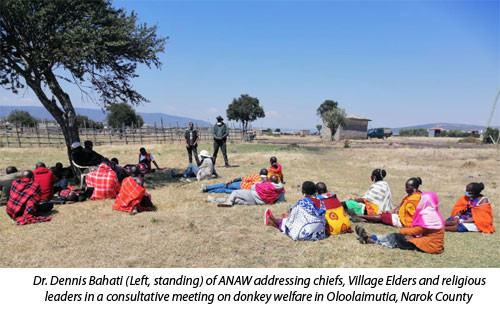
ANAW in partnership with Brooke East Africa (BEA) and the county governments of Kajiado and Narok successfully implemented a Donkey Cross Border Movement Project that ran from July 2019 and concluded in March 2020 achieving tremendous strides in safeguarding and upholding the welfare of donkeys in Kenya. The project objective was to establish the existence, nature, and movement of donkeys along the Kenya-Tanzania border demonstrating its correlation with the increased demand for slaughter within the Kenyan abattoirs. Through key recommendations highlighted by the project, ANAW has again partnered with BEA to implement a Phase 2 of same project that focuses on enhancing border donkey owning communities’ resilience and vigilance to better protect their donkeys running from August 2020 to March 2021. The project is titled, “Building resilience and capacity of donkey owning communities and grass-root government officials for increased vigilance on donkey movement along the Kenya-Tanzania border.”
Finally, the team met with the County Directors of Veterinary Services (CDVS) in Kajiado and Narok, Dr Achola Yala and Dr Bernard Njau respectively, to discuss on the modalities of the new project and to request their continued engagement and collaboration. The project continues with intense field- work involving stakeholder engagement in Narok and Kajiado counties, seeking to wrap up this quarter’s activities and deliverables by the close of September.
Support Our Work Here's a great way to support Africa Network for Animal Welfare (ANAW) and enable us to protect future generations of animals. You can do so through the following ways: Through Donation Leave a Legacy in Your Will
|
||

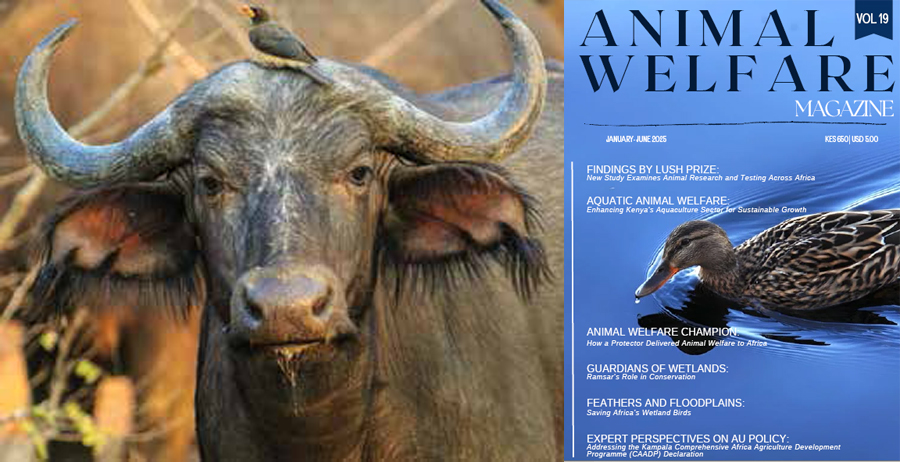
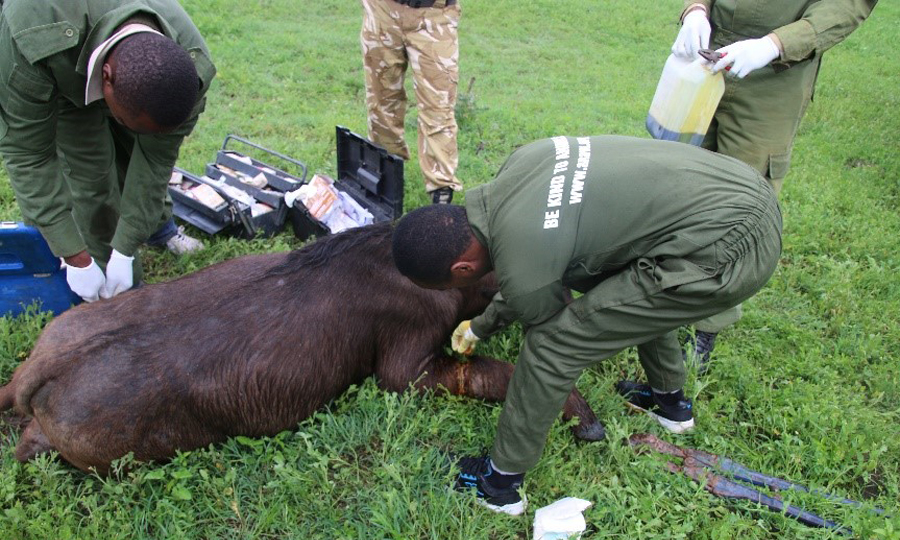
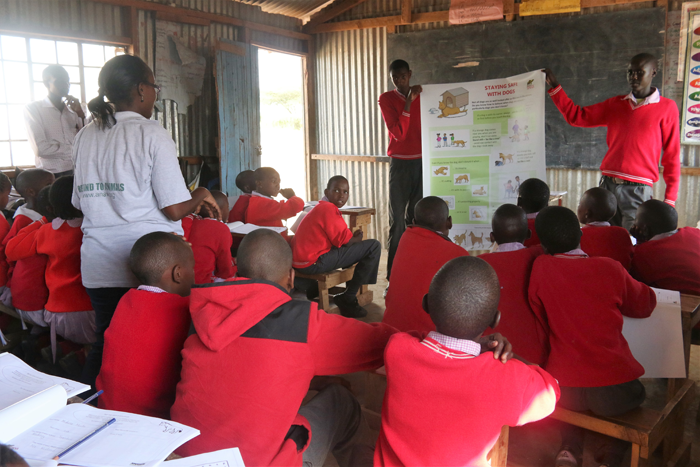
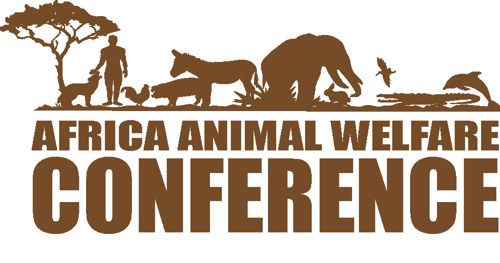
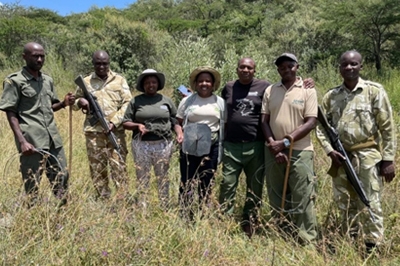
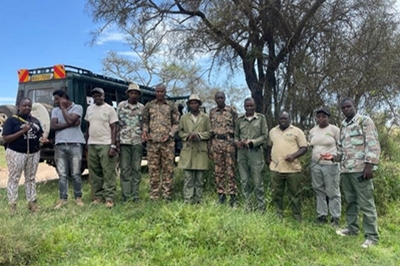
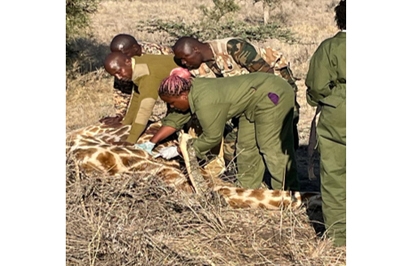
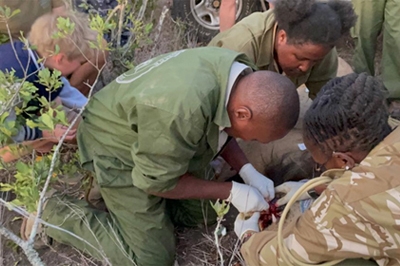
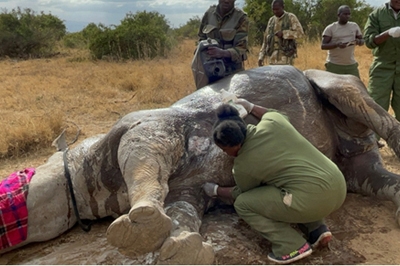
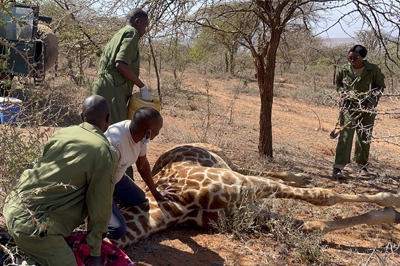
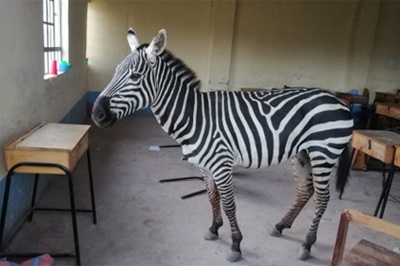
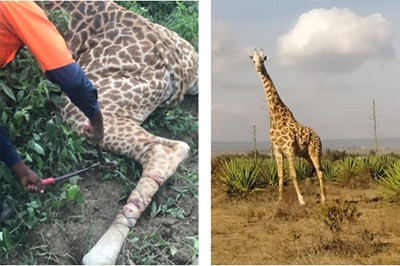
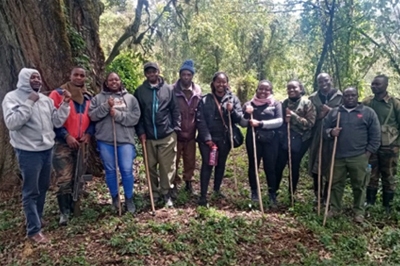
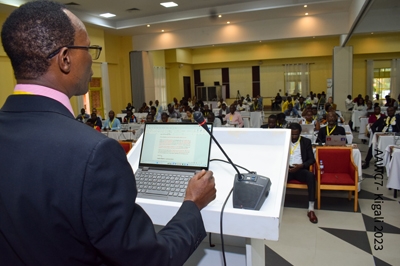
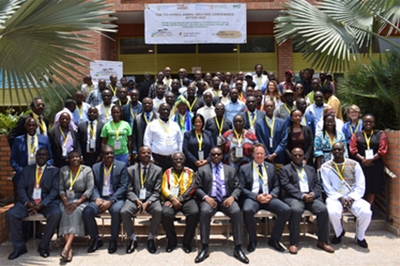
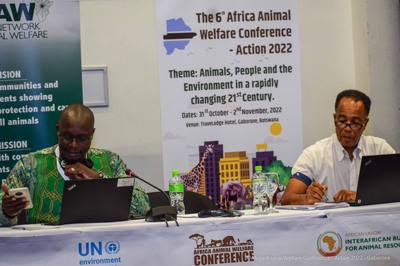
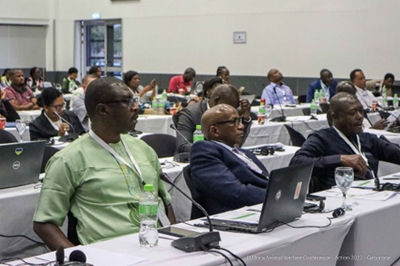
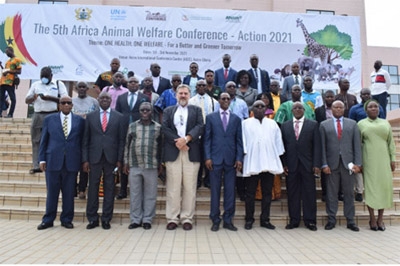
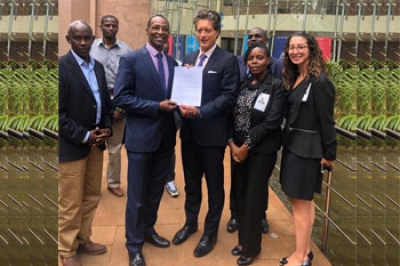
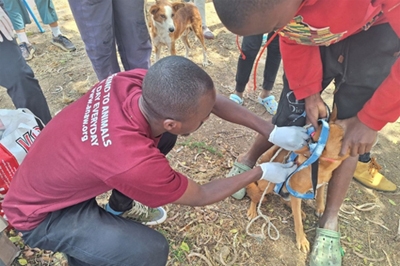
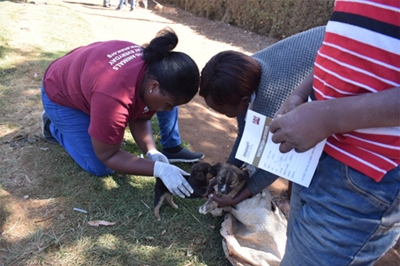
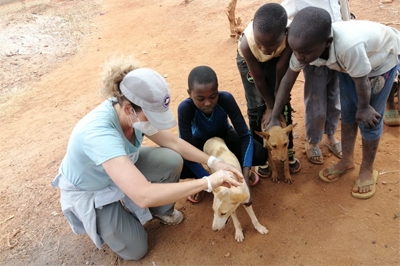
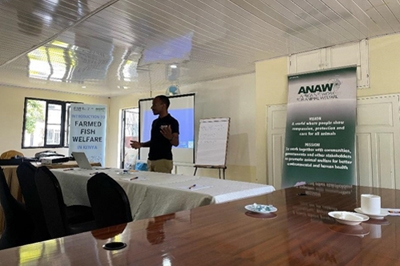
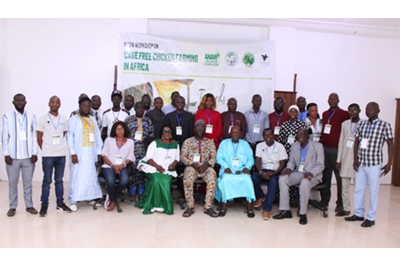
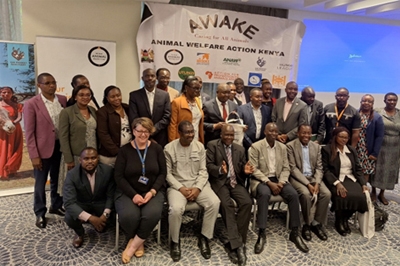
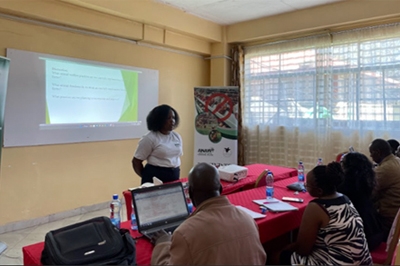
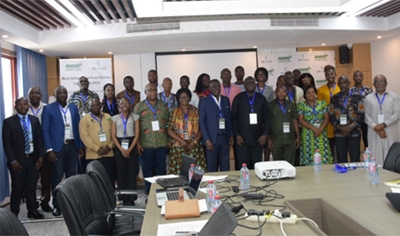
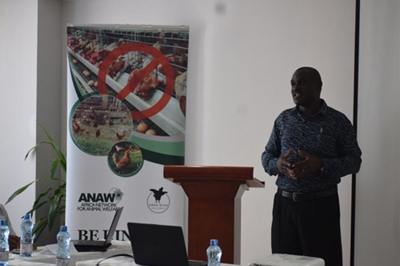
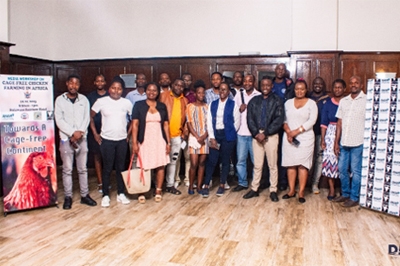
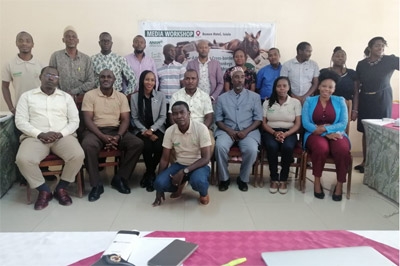
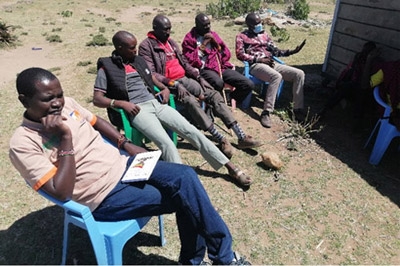
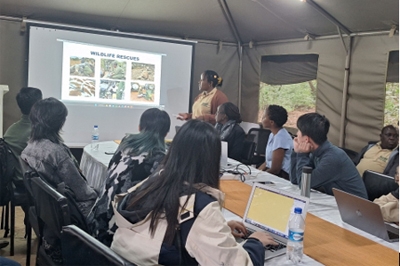
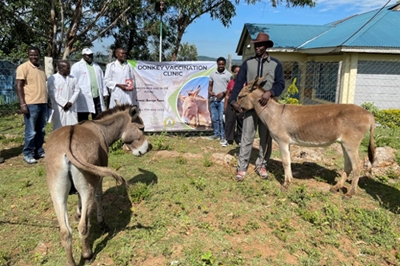
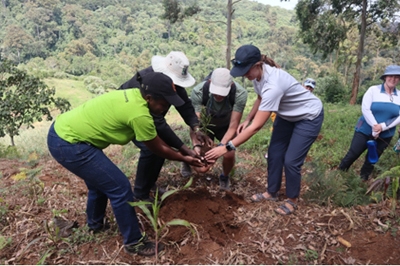
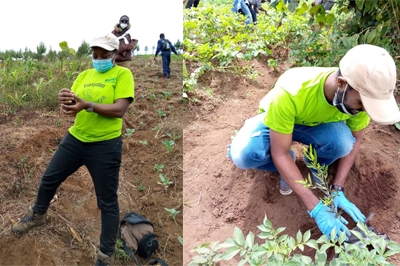
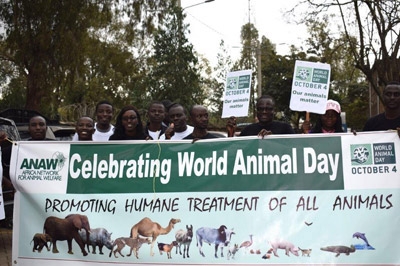
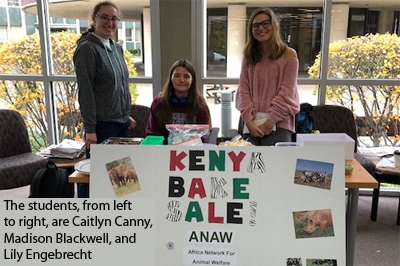
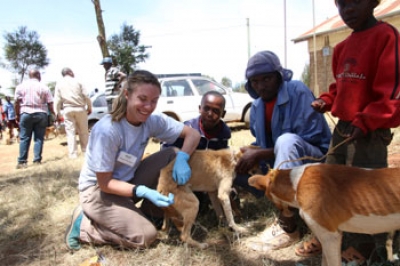
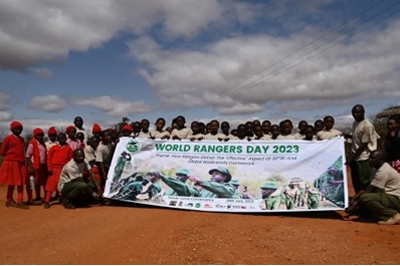
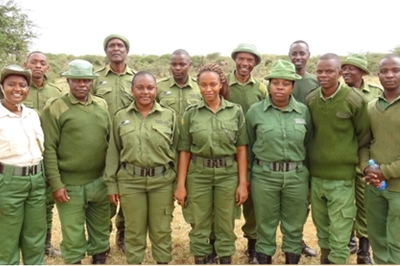
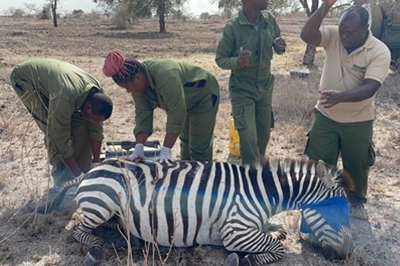
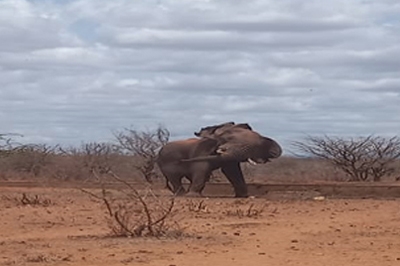
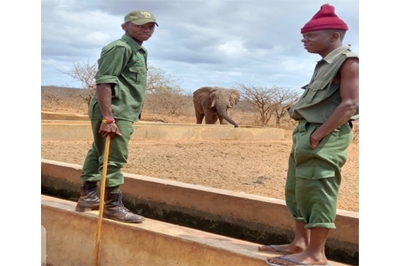
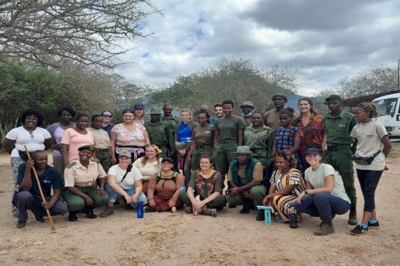
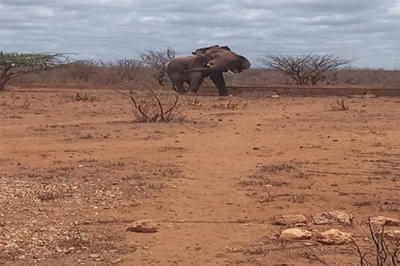
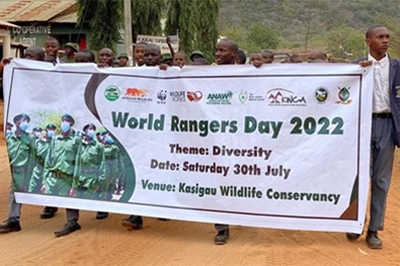
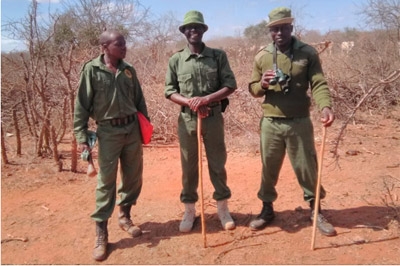
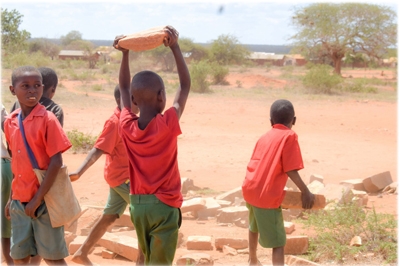
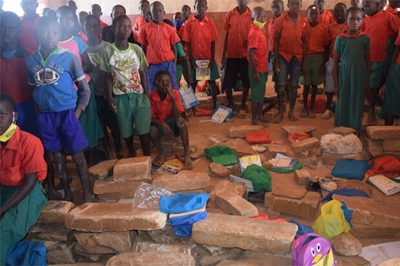
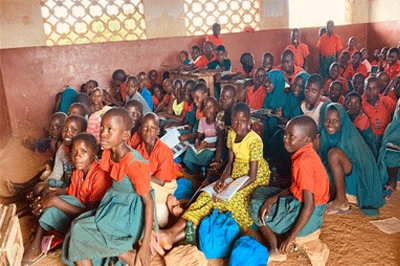
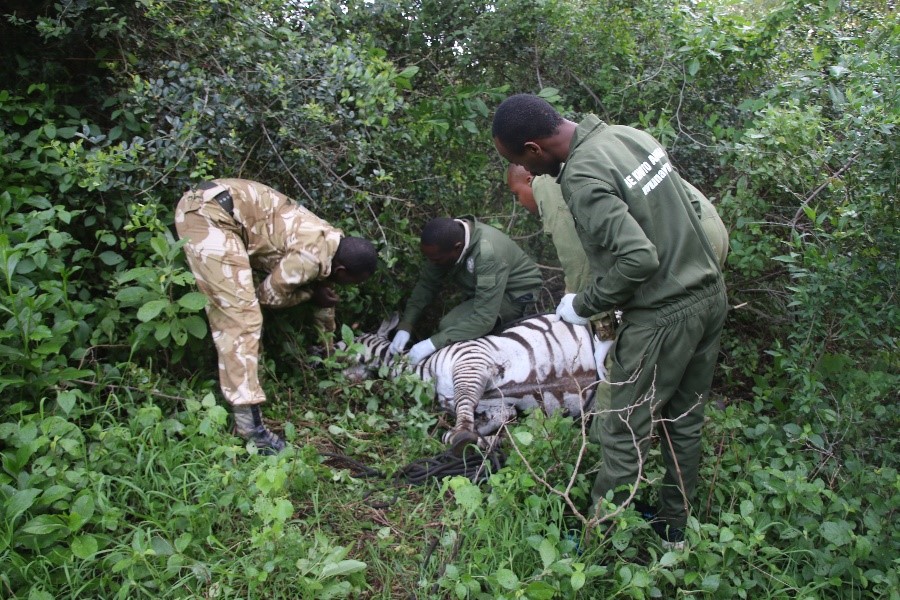
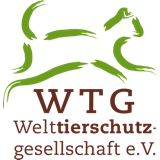
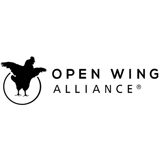
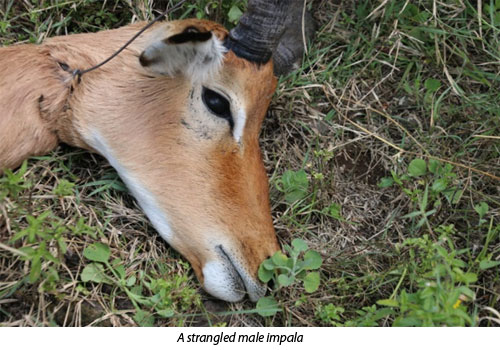
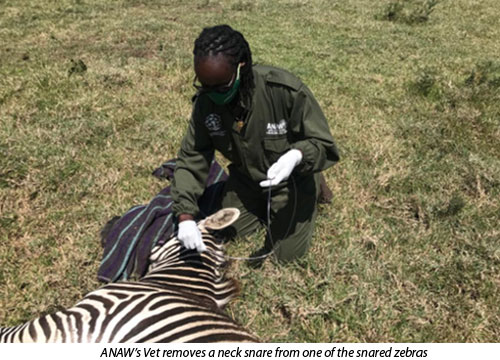
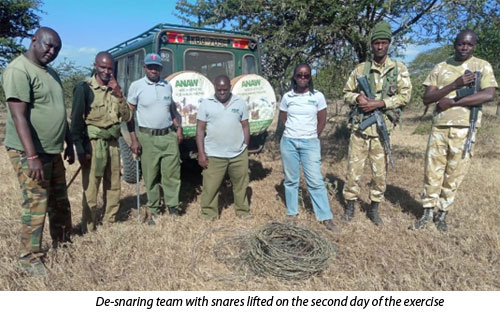
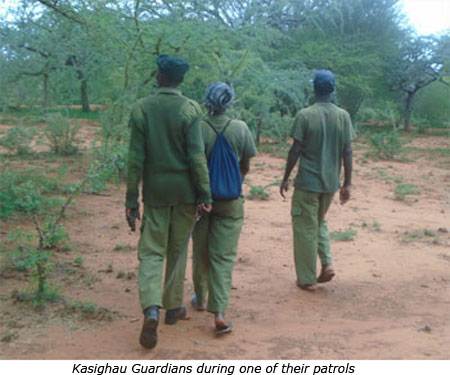
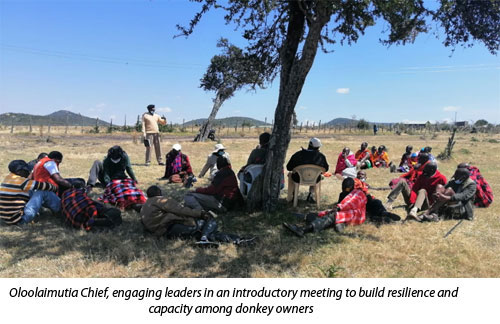
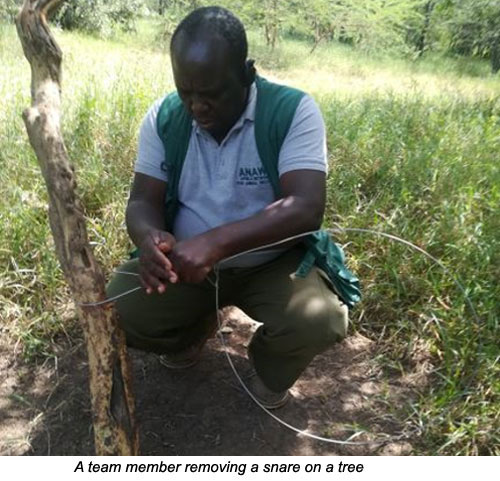
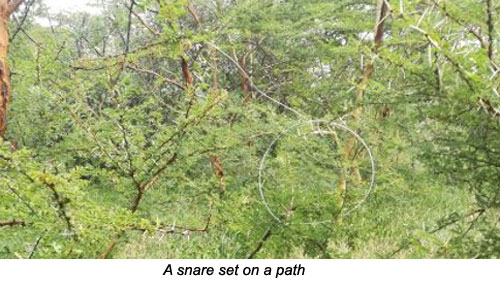 The team noted that, though the extent of bushmeat poaching was on a down-ward spiral compared to previous month where 68 wire snares had been lifted, there was still much work to be done. More poachers needed to be apprehended and news of their apprehension spread among the neighboring communities from which the poachers come, as a stern warning to other poachers that their days too, were numbered. This will deter most of them from participating in the vice.
The team noted that, though the extent of bushmeat poaching was on a down-ward spiral compared to previous month where 68 wire snares had been lifted, there was still much work to be done. More poachers needed to be apprehended and news of their apprehension spread among the neighboring communities from which the poachers come, as a stern warning to other poachers that their days too, were numbered. This will deter most of them from participating in the vice.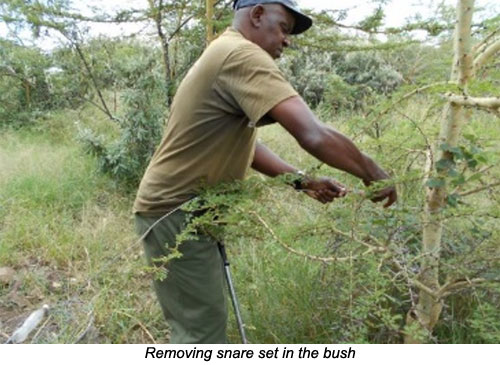 Though the level of wire snaring in the area had significantly gone down in the other three ranches (Maanzoni, Malinda and Lukenya), the KWS rangers urged the team to help in carrying out more extensive patrols specifically in Kwa Kyelu ranch. ANAW has planned more community awareness sessions in the coming months to ensure the surrounding communities are increasingly sensitized on the benefits of conserving wildlife and hence encourage them to report any suspicious poaching activities to the authorities for action.
Though the level of wire snaring in the area had significantly gone down in the other three ranches (Maanzoni, Malinda and Lukenya), the KWS rangers urged the team to help in carrying out more extensive patrols specifically in Kwa Kyelu ranch. ANAW has planned more community awareness sessions in the coming months to ensure the surrounding communities are increasingly sensitized on the benefits of conserving wildlife and hence encourage them to report any suspicious poaching activities to the authorities for action.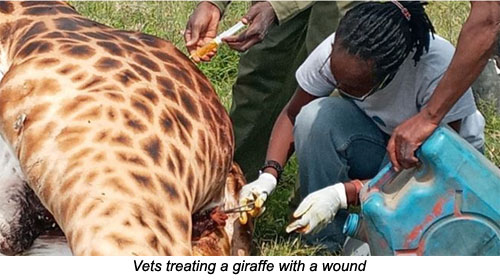
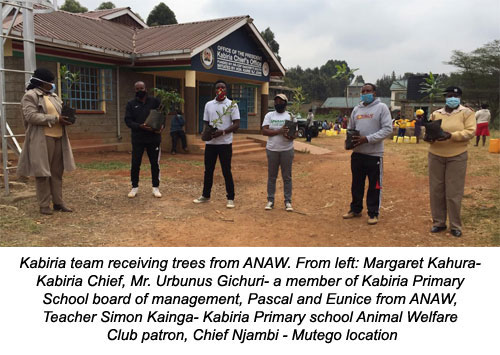
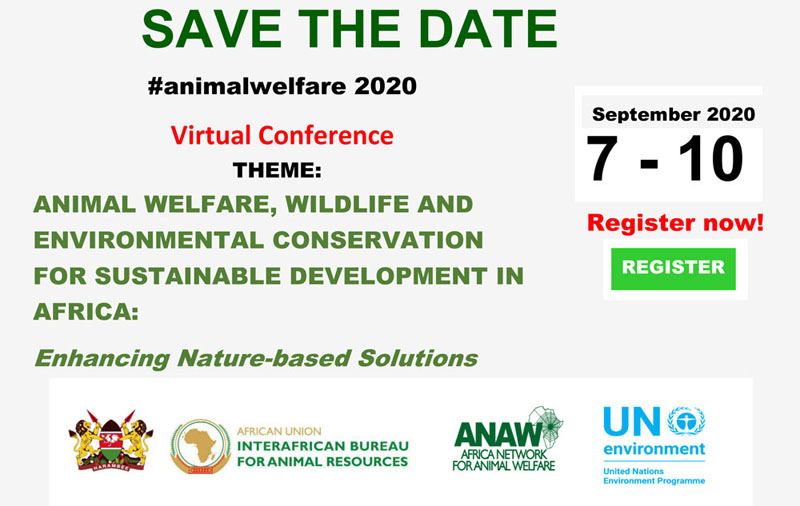
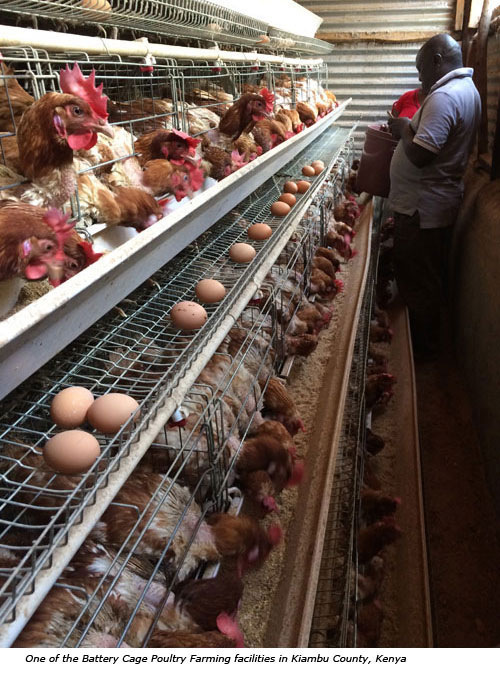
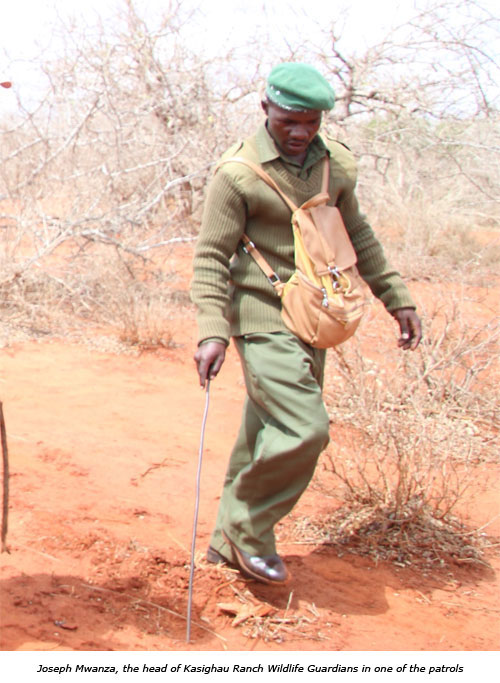
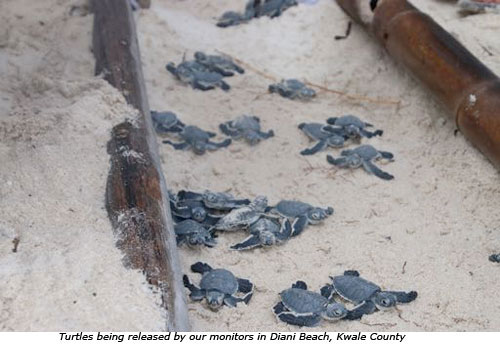
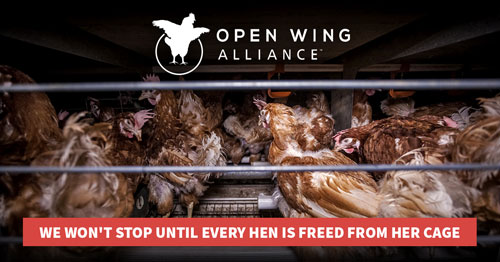
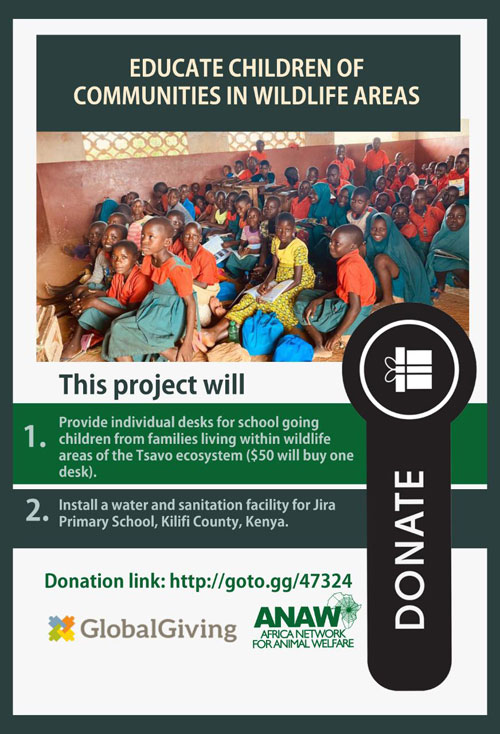
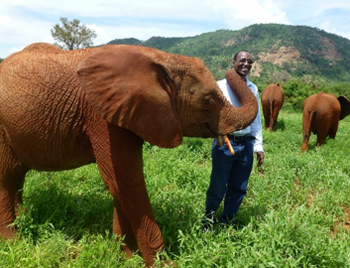 I am always amazed at just how fast a year goes by. It seems like just yesterday when I was wishing you all a prosperous 2018! I am, nonetheless, grateful to be marking another New Year with you for supporting ANAW in realizing milestones in 2018.
I am always amazed at just how fast a year goes by. It seems like just yesterday when I was wishing you all a prosperous 2018! I am, nonetheless, grateful to be marking another New Year with you for supporting ANAW in realizing milestones in 2018.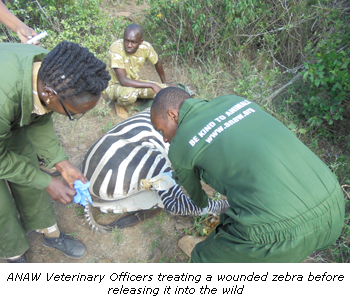 Bushmeat crisis is the most significant and immediate threat to wildlife populations in Africa today. According to the report ‘Lifting the Siege, Securing Kenya’s Wildlife’ done by a Task Force on Wildlife Security, subsistence bush meat poaching has hit unprecedented levels with the growing commercial bush meat trade, now a highly lucrative business, emerging as a multi-million-shilling industry that poses a serious threat to conservation.
Bushmeat crisis is the most significant and immediate threat to wildlife populations in Africa today. According to the report ‘Lifting the Siege, Securing Kenya’s Wildlife’ done by a Task Force on Wildlife Security, subsistence bush meat poaching has hit unprecedented levels with the growing commercial bush meat trade, now a highly lucrative business, emerging as a multi-million-shilling industry that poses a serious threat to conservation.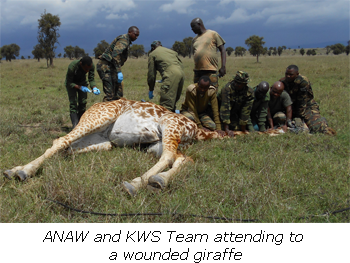 Between the months of August-December 2018, and through ANAW’s Anti-Bushmeat Initiatives encompassing both emergency wildlife rescues and routine de-snaring patrols, a cumulative total of 17 wild animals (9 Zebras, 2 Buffalos, 3 Waterbucks, 1 Impala and 2 Giraffe) were rescued during the campaigns mounted in 3 of our core project zones Nairobi, Nakuru and Machakos Counties.
Between the months of August-December 2018, and through ANAW’s Anti-Bushmeat Initiatives encompassing both emergency wildlife rescues and routine de-snaring patrols, a cumulative total of 17 wild animals (9 Zebras, 2 Buffalos, 3 Waterbucks, 1 Impala and 2 Giraffe) were rescued during the campaigns mounted in 3 of our core project zones Nairobi, Nakuru and Machakos Counties.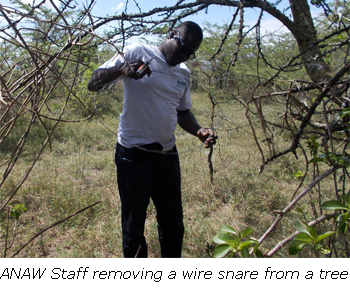 In our efforts to curb bush meat poaching, ANAW in partnership with Soysambu Conservancy, Kenya Wildlife Service (KWS) organized a de-snaring exercise between 20th and 23rd November 2018. The expedition also involved our partners - Project Abroad and Bweha Camp.
In our efforts to curb bush meat poaching, ANAW in partnership with Soysambu Conservancy, Kenya Wildlife Service (KWS) organized a de-snaring exercise between 20th and 23rd November 2018. The expedition also involved our partners - Project Abroad and Bweha Camp.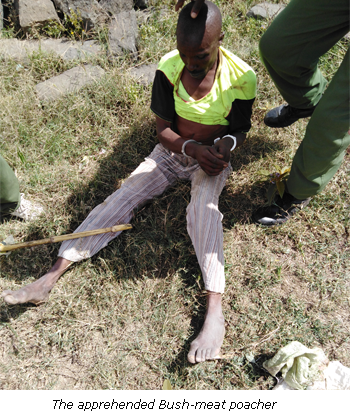 Consequently, the KWS rangers with the team managed to apprehend one poacher in possession of 210Kgs of zebra meat valued at approximately Kshs. 83,200 that had been packed in eight gunny bags. Two of his accomplices escaped from the team’s dragnet. The suspect, who appeared before a Nakuru County Chief Magistrate, was set to ferry the bush meat to unknown destination via a motorcycle for sale to unsuspecting customers. Although the accused denied the charge, he was released on a Kshs. 1million bond with surety of a similar amount or an alternative cash bail of Kshs. 500,000.
Consequently, the KWS rangers with the team managed to apprehend one poacher in possession of 210Kgs of zebra meat valued at approximately Kshs. 83,200 that had been packed in eight gunny bags. Two of his accomplices escaped from the team’s dragnet. The suspect, who appeared before a Nakuru County Chief Magistrate, was set to ferry the bush meat to unknown destination via a motorcycle for sale to unsuspecting customers. Although the accused denied the charge, he was released on a Kshs. 1million bond with surety of a similar amount or an alternative cash bail of Kshs. 500,000. 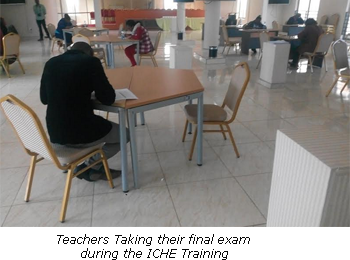 The last quarter of this year saw a flurry of activities in Promoting Animal Welfare in Schools (PAWS) project. A project implemented through the ANAW-SPANA (Society for the Protection of Animals Abroad) partnership. We are ever gladdened by the impact the program is having on the more than 11,000 students who have so far attended the Animal Welfare Clubs (AWC) in the 42 schools, within our five Counties of operations (Kiambu, Machakos, Makueni, Kajiado and Nairobi).
The last quarter of this year saw a flurry of activities in Promoting Animal Welfare in Schools (PAWS) project. A project implemented through the ANAW-SPANA (Society for the Protection of Animals Abroad) partnership. We are ever gladdened by the impact the program is having on the more than 11,000 students who have so far attended the Animal Welfare Clubs (AWC) in the 42 schools, within our five Counties of operations (Kiambu, Machakos, Makueni, Kajiado and Nairobi).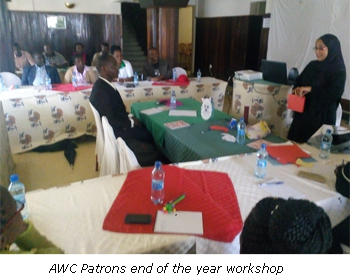 The AWC patrons’ End of the Year workshop was held on 14th December 2018 in Machakos County. This was a time to evaluate individual performance within respective clubs and make suggestions on how to improve the running of the clubs in 2019. During the workshop, teachers had a chance to learn how to improvise learning materials with their learners to enhance retention of content delivered
The AWC patrons’ End of the Year workshop was held on 14th December 2018 in Machakos County. This was a time to evaluate individual performance within respective clubs and make suggestions on how to improve the running of the clubs in 2019. During the workshop, teachers had a chance to learn how to improvise learning materials with their learners to enhance retention of content delivered 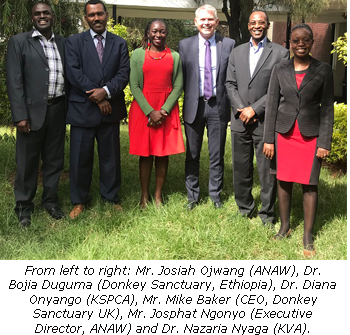 The Donkey Sanctuary and Government of Ethiopia convened a regional stakeholder forum to discuss the slaughter of donkeys and skin trade in the country. The forum was held against the backdrop of community agitation against the slaughter of donkeys and the determination of Chinese investors to set up donkey abattoirs in Ethiopia; attracted by its large donkey population estimated at 8.4 million, currently the largest globally.
The Donkey Sanctuary and Government of Ethiopia convened a regional stakeholder forum to discuss the slaughter of donkeys and skin trade in the country. The forum was held against the backdrop of community agitation against the slaughter of donkeys and the determination of Chinese investors to set up donkey abattoirs in Ethiopia; attracted by its large donkey population estimated at 8.4 million, currently the largest globally.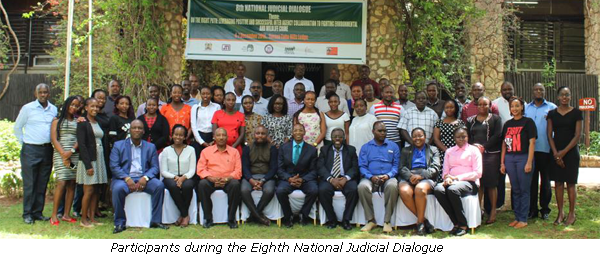 In collaboration with the Judiciary Training Institute (JTI), the Kenya Wildlife Service (KWS) and the Office of the Director of Public Prosecutions (ODPP), ANAW co-hosted the 8th Intra-Agency Forum on Wildlife and Environmental Crimes on 4 - 7 December 2018 at Sarova Taita Hills Game Lodge within Taita Hills Wildlife Conservancy in Taita Taveta County. The forum themed ‘On the Right Path: Leveraging Positive and Successful Inter-Agency Collaboration to Fighting Environmental and Wildlife Crime’ brought together participants; comprising of a judge, magistrates, prosecutors, investigators, participants drawn from the civil society, wildlife and environmental conservation partners and community representatives.
In collaboration with the Judiciary Training Institute (JTI), the Kenya Wildlife Service (KWS) and the Office of the Director of Public Prosecutions (ODPP), ANAW co-hosted the 8th Intra-Agency Forum on Wildlife and Environmental Crimes on 4 - 7 December 2018 at Sarova Taita Hills Game Lodge within Taita Hills Wildlife Conservancy in Taita Taveta County. The forum themed ‘On the Right Path: Leveraging Positive and Successful Inter-Agency Collaboration to Fighting Environmental and Wildlife Crime’ brought together participants; comprising of a judge, magistrates, prosecutors, investigators, participants drawn from the civil society, wildlife and environmental conservation partners and community representatives.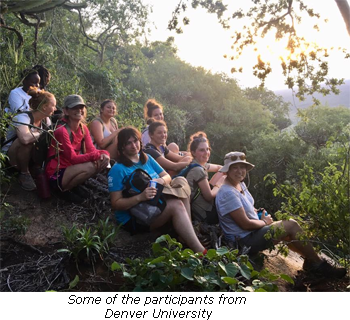 Seeming like a fruitless effort, Fred stepped harder on the gas pedal and we all felt the wheels spinning fast. It had rained heavily the previous night and the small road through the bush was muddy. Fred had tried to swerve the bus past the slight pothole on the slippery bumpy dirt road but the bus slid into it. He revved up the engine ardent and focused. Cheers and claps of joy went up the air when the bus lurched forward and started moving again.
Seeming like a fruitless effort, Fred stepped harder on the gas pedal and we all felt the wheels spinning fast. It had rained heavily the previous night and the small road through the bush was muddy. Fred had tried to swerve the bus past the slight pothole on the slippery bumpy dirt road but the bus slid into it. He revved up the engine ardent and focused. Cheers and claps of joy went up the air when the bus lurched forward and started moving again.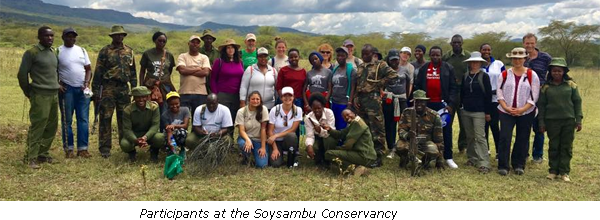 The students brought much insight to the topic and their studies focus on specializations such as Sustainable Development and Global Practices, Aging Services and Policy, Children and Youth, Child Welfare, Family Systems and Practice, Mental Health, and Health and Wellness. Themed ‘Women in Conservation’, the 12-female student team accompanied by two professors and a community representative were heavily involved in the hands-on experience within the first two weeks of December
The students brought much insight to the topic and their studies focus on specializations such as Sustainable Development and Global Practices, Aging Services and Policy, Children and Youth, Child Welfare, Family Systems and Practice, Mental Health, and Health and Wellness. Themed ‘Women in Conservation’, the 12-female student team accompanied by two professors and a community representative were heavily involved in the hands-on experience within the first two weeks of December